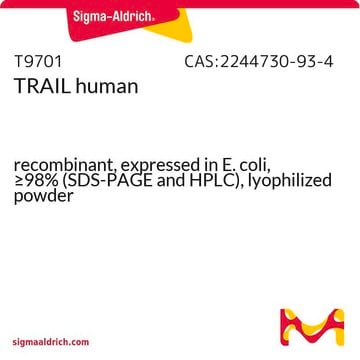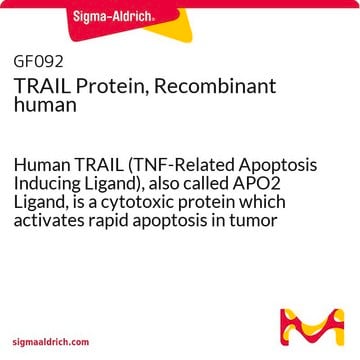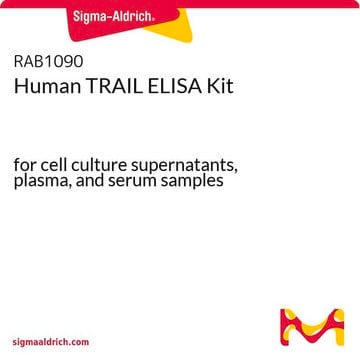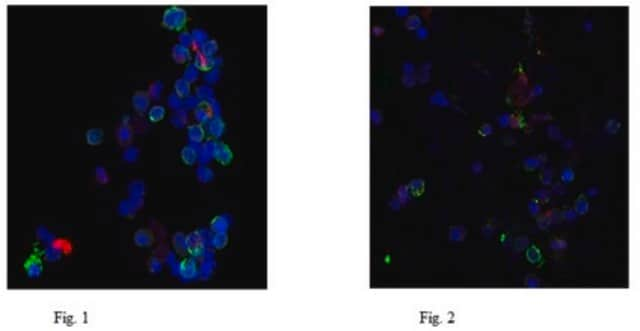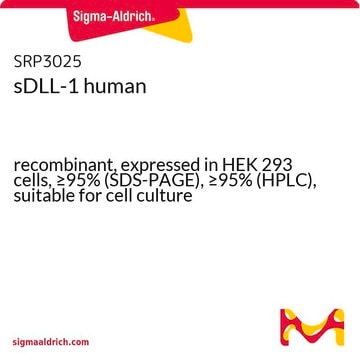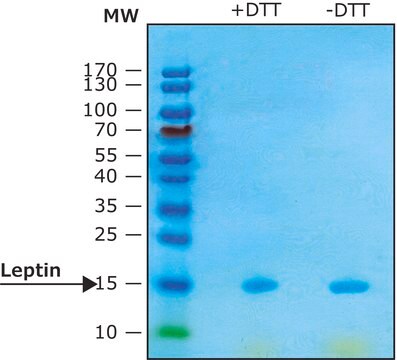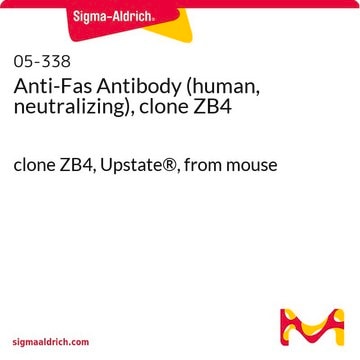T5694
TRAIL human
recombinant, expressed in NSO cells, >97% (SDS-PAGE), lyophilized powder
Synonyme(s) :
Apo2 Ligand, TL2
About This Item
Produits recommandés
Source biologique
human
Niveau de qualité
Produit recombinant
expressed in NSO cells
Description
N-terminal 6X histidine-tagged extracellular domain
Pureté
>97% (SDS-PAGE)
Forme
lyophilized powder
Poids mol.
24 kDa by SDS-PAGE
predicted mol wt ~21 kDa
Technique(s)
cell culture | mammalian: suitable
Impuretés
endotoxin, tested
Numéro d'accès UniProt
Température de stockage
−20°C
Informations sur le gène
human ... TNFSF10(8743)
Vous recherchez des produits similaires ? Visite Guide de comparaison des produits
Application
Actions biochimiques/physiologiques
Forme physique
Remarque sur l'analyse
Code de la classe de stockage
11 - Combustible Solids
Classe de danger pour l'eau (WGK)
WGK 3
Point d'éclair (°F)
Not applicable
Point d'éclair (°C)
Not applicable
Certificats d'analyse (COA)
Recherchez un Certificats d'analyse (COA) en saisissant le numéro de lot du produit. Les numéros de lot figurent sur l'étiquette du produit après les mots "Lot" ou "Batch".
Déjà en possession de ce produit ?
Retrouvez la documentation relative aux produits que vous avez récemment achetés dans la Bibliothèque de documents.
Notre équipe de scientifiques dispose d'une expérience dans tous les secteurs de la recherche, notamment en sciences de la vie, science des matériaux, synthèse chimique, chromatographie, analyse et dans de nombreux autres domaines..
Contacter notre Service technique